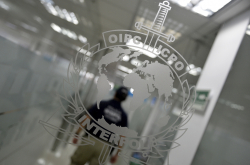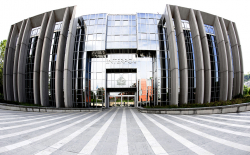INTERPOL is committed to having a diverse and respectful workplace where all officials feel included, valued, and respected – regardless of their background, experience, gender, nationality, race, ethnic origin, religion, language, marital status, sexual orientation, age, disability, or socioeconomic status.
This was formalized in 2022, when INTERPOL’s General Assembly voted to further prioritize diversity and inclusion to ensure that the Organization truly reflects its global membership of countries.
Attracting a diverse workforce is also key part of the Organization’s Strategic Framework.

Geographical representation
There are over 140 nationalities represented across the General Secretariat – approximately two-thirds of our member countries. This diverse workforce is one of our key strengths, enabling us to better address the complex policing challenges faced by our 196 member countries.
Seconded officials, who are deployed by a member country, bring new perspectives and expertise to INTERPOL. In return, they acquire international policing experience and knowledge that they can share in their home countries when they return, creating a global exchange of best practices.
We strive to attract a diverse range of candidates through ongoing outreach efforts, including strategic meetings with National Central Bureaus and Regional Bureaus, as well as webinars that bring together professionals from various backgrounds. However, some countries and regions remain unrepresented. INTERPOL is committed to pushing for even greater geographical diversity and welcomes applications from candidates of all member countries.
INTERPOL actively encourages applications from women and nationals of member countries that are currently unrepresented among our staff (see document below for list of countries). Candidates from these countries are particularly encouraged to apply.
Advancing gender parity at the INTERPOL General Secretariat
We believe that our workforce, and law enforcement in general, must feature gender diversity at all hierarchical levels.
Currently, female officers comprise approximately 40-45% of INTERPOL's workforce and hold around a quarter of our leadership positions. To encourage more women to join our ranks, INTERPOL is taking concrete steps to attract and support female candidates.

We regularly host informational sessions to provide insights into career opportunities and guidance from experienced leaders within the organization. These sessions create a platform for discussion and sharing career experiences.
We also engage with professional networks, such as the International Association of Women Police (IAWP), to strengthen our connection with women in law enforcement globally. This partnership expands awareness of opportunities at INTERPOL and highlights career pathways within our organization.
Additionally, the INTERPOL Financial Assistance for Secondment Program has been instrumental in removing financial barriers for female officers from underrepresented or non-represented countries. This initiative broadens access to secondment opportunities and encourages diverse participation within our workforce.






